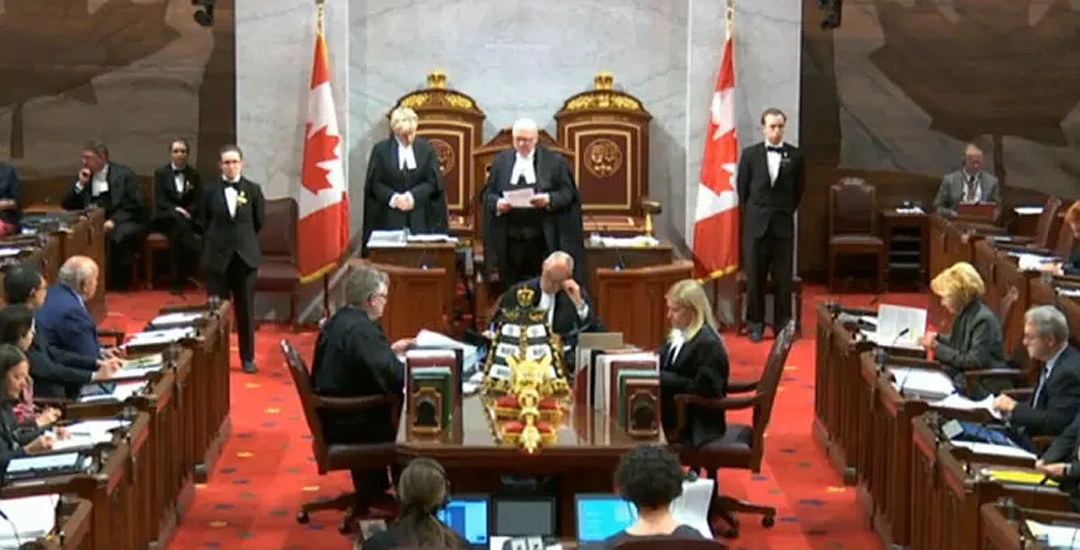Understanding Government and Politics in Canada

The Constitutional Monarchy of Canada
The present king of Canada is King Charles III, however his position is primarily ceremonial; elected politicians hold the real political power. In Canada, the Governor General serves as the head of state and is responsible for several tasks including choosing the Prime Minister following federal elections, dissolving Parliament, and bestowing royal assent on laws. Despite having actual authority, the Governor General acts on the Prime Minister’s and Cabinet’s advice.
The Parliamentary Democracy of Canada
As a parliamentary democracy, Canada’s citizens choose representatives to act on their behalf when making decisions. The House of Commons and the Senate are the two chambers that make up the bicameral parliamentary system that governs the federal government.
The House of CommonsThe more powerful of the two chambers, the House of Commons is made up of elected officials known as Members of Parliament (MPs). Canadians elect Members of Parliament (MPs) to represent geographic areas known as ridings every four years (or earlier if an election is called). The prime minister is chosen by the political party with the most seats in the House of Commons to form the government.
The SenateUnlike the House of Commons, the Senate is an upper house whose members are appointed rather than elected. The Governor General appoints senators based on the Prime Minister’s recommendation. Examining, changing, or rejecting legislation enacted by the House of Commons is the Senate’s main responsibility. The Senate guarantees that laws are carefully scrutinized before becoming official and offers regional representation, even though it has less authority than the House of Commons.
Federalism: The Division of Powers
The precise duties assigned to each level of government are outlined in the Constitution Act of 1867. By allowing provincial governments to address local issues and the federal government to handle national and international problems, this split guarantees shared governance.
1. The national government
The national interest is handled by the federal government, which has its headquarters in Ottawa. Among its duties are:
- Defence of the nation
- Immigration
- International relations
- Trade and federal taxes
- Criminal code
The Prime Minister, the Cabinet, which consists of ministers nominated by the PM, and federal ministries and agencies that carry out policy and offer services nationwide comprise the federal government.
2. Territorial and Provincial Administrations
The province governments are in charge of the following areas of jurisdiction:
- Education in Healthcare and
- Transportation
- Natural resources
- Local government
- Every four years, there are
- provincial elections.
Due to their distinct physical and cultural conditions, the territories—which comprise the Northwest Territories, Nunavut, and Yukon—have somewhat diverse systems of government, although they nevertheless have locally elected members.
Canada’s Political Parties
A multi-party democracy is the foundation of the Canadian political system, and different political parties compete in federal, provincial, and territory elections. The political scene is dominated by a few main political parties, despite the existence of several parties.
Canada’s Liberal PartyIts main themes include global diplomacy, economic expansion, and progressive social programs. Justin Trudeau, the prime minister, is the Liberal Party’s current leader.
The Canadian Conservative PartyCentre-right politics are embodied by the Conservative Party, which supports prudent budgetary management, reduced taxation, and a robust national defence. The majority of its proponents are in favour of less government involvement in the economy and individual liberties.
The NDP, or New Democratic PartyThe NDP is a left-wing political organization that prioritizes public services, workers’ rights, and social justice. Healthcare, education, and lowering economic inequality are frequently the main topics of its policy.
The Quebec BlocThe goal of the regional party Bloc Québécois is to advocate Quebec’s interests in the federal Parliament. It supports the preservation of the French language and culture as well as the sovereignty of Quebec.
The Canadian Green Party
The Green Party is primarily concerned with environmental issues; it promotes renewable energy, and sustainability, and combats climate change. Initiatives for social justice are also supported.
Canadian Elections
An essential component of Canadian democracy is elections. By electing representatives, citizens can take part in governance at the federal, provincial, and local levels. Although early elections may be called if the Prime Minister loses the support of the House of Commons, federal elections normally occur every four years.
1. The Voting Procedure
Voters in Canada’s electoral districts cast their ballots for candidates using the first-past-the-post method for federal elections. Generally speaking, the party with the most seats becomes the government.
2. Qualification for Voting
In Canada, you have to:
- Hold citizenship in Canada.
- Have at least eighteen years old.
- Ensure that you are a voter
Judiciary and the Legal System
Courts, both federal and provincialCanada has several federal and provincial courts in addition to the Supreme Court that deals with a variety of legal matters, ranging from criminal law to civil issues.
Participation of Citizens and Their Rights
In addition to voting, Canadian residents are urged to interact with their elected officials and participate in public consultations as ways to get involved in governance. The Constitution Act, of 1982, which established the Canadian Charter of Rights and Freedoms, protects essential liberties like:
- Expression without restriction
- The right to assemble
- Rights to equality
- Democratic candidates’ and voters’ rights.
Canada’s Human Rights
The foundation of Canadian governance is human rights. In federally regulated institutions and services, discrimination based on race, gender, sexual orientation, disability, or age is forbidden by the Canadian Human Rights Act. Furthermore, local issues are covered by the human rights laws that are specific to each province and region.
In summary
The foundation of Canada’s parliamentary system and governance is a dedication to democracy, civic participation, and the rule of law. Its design strikes a balance between federalism and provincial autonomy by combining elements of parliamentary democracy, constitutional monarchy, and federalism. Gaining a grasp of these political components will facilitate your engagement and navigation of Canada’s governance, regardless of your citizenship status.
Developer One
Recent Posts
How to Get Jobs in Germany
 IndieTalent | Discover Global Career Opportunities
IndieTalent | Discover Global Career Opportunities
- How to Get Jobs in Germany July 14, 2025Follow this step-by-step guide to find jobs in Germany and start your career with expert support from IndieTalent. The post How to Get Jobs in Germany first appeared on IndieTalent | Discover Global Career Opportunities.
- How IndieTalent Simplifies Ausbildung Recruitment for Employers March 18, 2025Discover how IndieTalent streamlines Ausbildung recruitment for German employers, connecting them with pre-screened international candidates. The post How IndieTalent Simplifies Ausbildung Recruitment for Employers first appeared on IndieTalent | Discover Global Career Opportunities.
- German Hospital team Visit to India Strengthens Indo-German Healthcare Collaborations March 13, 2025Find top IT talent from across the globe. Rely on IndieTalent to find your next star employee. Find out more The post German Hospital team Visit to India Strengthens Indo-German Healthcare Collaborations first appeared on IndieTalent | Discover Global Career Opportunities.
- Germany’s EU Blue Card Expansion: A Game-Changer for Global Talent February 6, 2025Discover electrician job opportunities in Germany for Indian professionals. Learn about requirements, language skills, qualifications, and steps to work abroad. The post Germany’s EU Blue Card Expansion: A Game-Changer for Global Talent first appeared on IndieTalent | Discover Global Career Opportunities.





